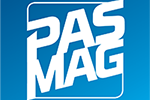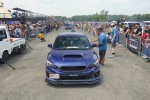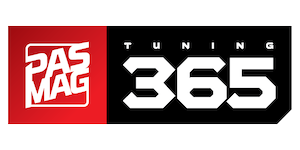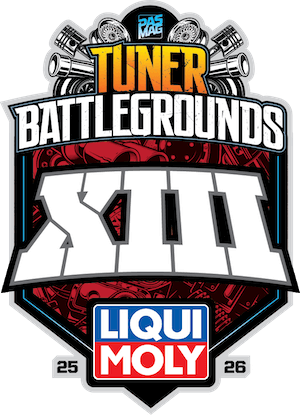The Subaru Impreza WRX isn’t your average four-door import sedan because it has racing lineage. The Subaru Company is a subsidiary of Fuji Heavy Industries and in 1954 the company took on the challenge of building a road car. The car was called the P1, but later was changed to the Subaru 1500. The name Subaru closely translates to reference the star cluster Pleiades, and they are the stars that are seen in the logo today. Over the decades Subaru  continued to build nice transportation cars, and in 1972 it made its first all-wheel-drive-car that made a name for itself in that rare market.
continued to build nice transportation cars, and in 1972 it made its first all-wheel-drive-car that made a name for itself in that rare market.
In 1992 the Subaru Impreza was released and it was developed after rule changes in the World Rally Championship (WRC) demanded a replacement to the Subaru Legacy, which was previously used by Subaru in the WRC. The changes meant that a new smaller, lighter and faster car was required in order to compete in the WRC. Right from the start the Subaru Impreza was developed for rallying. Over the years the Subaru Impreza WRX became the series champion and a wide variety of special models were introduced, many with impressive horsepower statistics for a car of its small size. Road racing is very popular in many countries so the Subaru WRX sold well in Japan, Europe and Australia but they weren’t imported to the U.S. Subaru management didn’t make the cars available in the United States because American buyers preferred Detroit muscle cars such as the Camaro, Firebird and Mustang, which were selling for about the same price as Subaru WRX special edition was in Europe.
In 2002 Subaru decided to release a Subaru Impreza WRX in the United States and to meet the U.S. fuel regulations, the engine was upgraded from a small 2.0 liter engine to a larger 2.5 liter engine to produce the same power and performance Subaru required for the model. After reading magazine  articles and seeing the selling price for the Subaru, many young buyers invested in the car because you could get a lot of bang for the buck. The Subaru wasn’t a great looking car by American standards, plus most were four-door sedans, but the performance and handling was impressive. The Subaru Impreza WRX was still winning races in the WRC because the company was engineering it to do so.
articles and seeing the selling price for the Subaru, many young buyers invested in the car because you could get a lot of bang for the buck. The Subaru wasn’t a great looking car by American standards, plus most were four-door sedans, but the performance and handling was impressive. The Subaru Impreza WRX was still winning races in the WRC because the company was engineering it to do so.
The young fellow who owns this 2002 WRX drives the car for transportation, but also likes to take it to the track to have fun with it. The car runs strong and handles well, but the brakes left a lot to be desired. After doing some research on the Internet he found that Wilwood Engineering makes a brake improvement kit for the car and that is exactly what he was looking for. The fellow ordered a Wilwood part number 140-9193 front brake kit and a 220-7009 hose kit. The brake kit features large Billet Dynapro calipers and large 12.00-inch diameter vented rotors for superior stopping power. The best part is this kit features a straightforward installation and the changeover can be done in less than a day.
Wilwood recommends that persons experienced in the installation and proper operation of disc brake systems should only perform the installation of this kit. It is a good idea to spread the kit parts out and make sure you have all of the parts listed in the instruction sheet. A hobby builder can install this kit if he has good mechanical knowledge and ability, car building experience and a good assortment of tools. You will need a floor jack and jack stands, an impact gun, metric wrenches and sockets, a rubber mallet, an inch-pound torque wrench and a foot-pound torque wrench. Other items that will come in handy include a bottle of Loctite 271, Teflon tape, and Wilwood Hi-temp 570 Racing Brake Fluid or Wilwood EXP 600 Plus Hi-Temp Racing Brake Fluid. We are going to show you how this installation is done so you can decide for yourself if you can perform this installation or if it would be better to have a professional do it for you.
The Wilwood part number 140-9193 disc brake kit features Billet Dynapro calipers, caliper brackets, 12.00-inch vented rotors with aluminum hats, BP-10 brake pads and all of the hardware required to complete the installation. Also ordered but not shown is the Wilwood part number 220-7009 Braided Stainless Steel Hose Kit.
The car was elevated with a floor jack and then the lug nuts were removed with an impact gun. After the lug nuts were disconnected, the wheels and tires were removed.
The original caliper was removed from the assembly. Using a long breaker bar for leverage, the caliper bolts were disconnected from the assembly and then the caliper was removed.
The rotor was removed next. If the rotor sticks to the centering ring a few taps on the backside with a rubber mallet will get it loose.
A close look at the hub assembly reveals the caliper mounting ears that will be used to mount the Wilwood caliper bracket.
The holes in the Subaru’s caliper mounting ears are rather large so they were outfitted with sleeves that bring them down to the bolt size required by the Wilwood caliper bracket.
The bolts outfitted with a 0.063-inch thick washer were inserted through the sleeve and then a 0.030-inch thick washer was used on the other side between the caliper mounting ears and the caliper bracket.
Before the caliper bracket was installed, it was loaded with two 0.035-inch thick washers, one 0.057-inch thick washer and a self-locking hex head nut.
The Wilwood caliper mounting bracket was bolted to the original caliper mounting ears. The Bolts were installed with an open-end wrench first, but they will have to be tightened with a torque wrench.
After the caliper to rotor centering was complete, the caliper bolts that were coated with Loctite 271 were tightened to 47 ft-lbs using a foot-pound torque wrench.
The rotors were attached to the aluminum hat assembly using the eight small bolts and washers included in the kit. The small bolts were coated with Loctite 271 and then they were tightened in an alternating sequence to 144 in-lbs using an inch-pound torque wrench. After the rotor assembly was completed, it was installed on the Subaru hub assembly.
The rotors were secured to the hub assembly with two lug nuts so that the caliper to rotor centering can be checked and achieved.
After the caliper was centered over the rotor, the mounting nuts were tightened to 35 ft-lbs using a foot-pound torque wrench.
The BP-10 Smart Pads were loaded into the calipers from the top. The pads are good for street and track use.
The threads on the caliper inlet fitting were coated with Teflon tape and then they were screwed into the caliper body. A cap is covering the fitting to keep it clean.
Here is what the rotor to caliper centering should look like when it is done properly. Notice that the radius on the rotor also perfectly matches the radius on the brake pads.
The brake pads were secured inside of the caliper with the quick-clip pad retainer.
The old brake hose has to be disconnected from the inner fender well mounted bracket. The steel hard line has already been disconnected.
The brake line bracket was outfitted with an adapter fitting and then the Subaru steel line was connected to one side and the Wilwood part number 220-7009 braided steel Flexline was connected to the other. The line was carefully run from the fitting to the inlet fitting on the caliper.
Here is the brake after the installation was completed. The Wilwood brake system will be a big improvement over the original brakes plus it certainly is more attractive, which is another plus.
This brake system is large but it does work fine with the original Subaru factory wheels. The wheels have large windows so you can see the Wilwood brake upgrade.
Source:
Wilwood Engineering
Performance Disc Brakes
www.wilwood.com
Related Articles
 2026 Honda Prelude makes its North American debut
2026 Honda Prelude makes its North American debut
 Wicked Big Meet, Connecticut 2025
Wicked Big Meet, Connecticut 2025
 Bentley unveils a Bentayga with a drift mode
Bentley unveils a Bentayga with a drift mode
 Lexus unveils IS 500 Ultimate Edition
Lexus unveils IS 500 Ultimate Edition
 Quick Drive – 2025 Chevrolet Blazer EV SS
Quick Drive – 2025 Chevrolet Blazer EV SS
 Is Subaru planning an STI return?
Is Subaru planning an STI return?


























